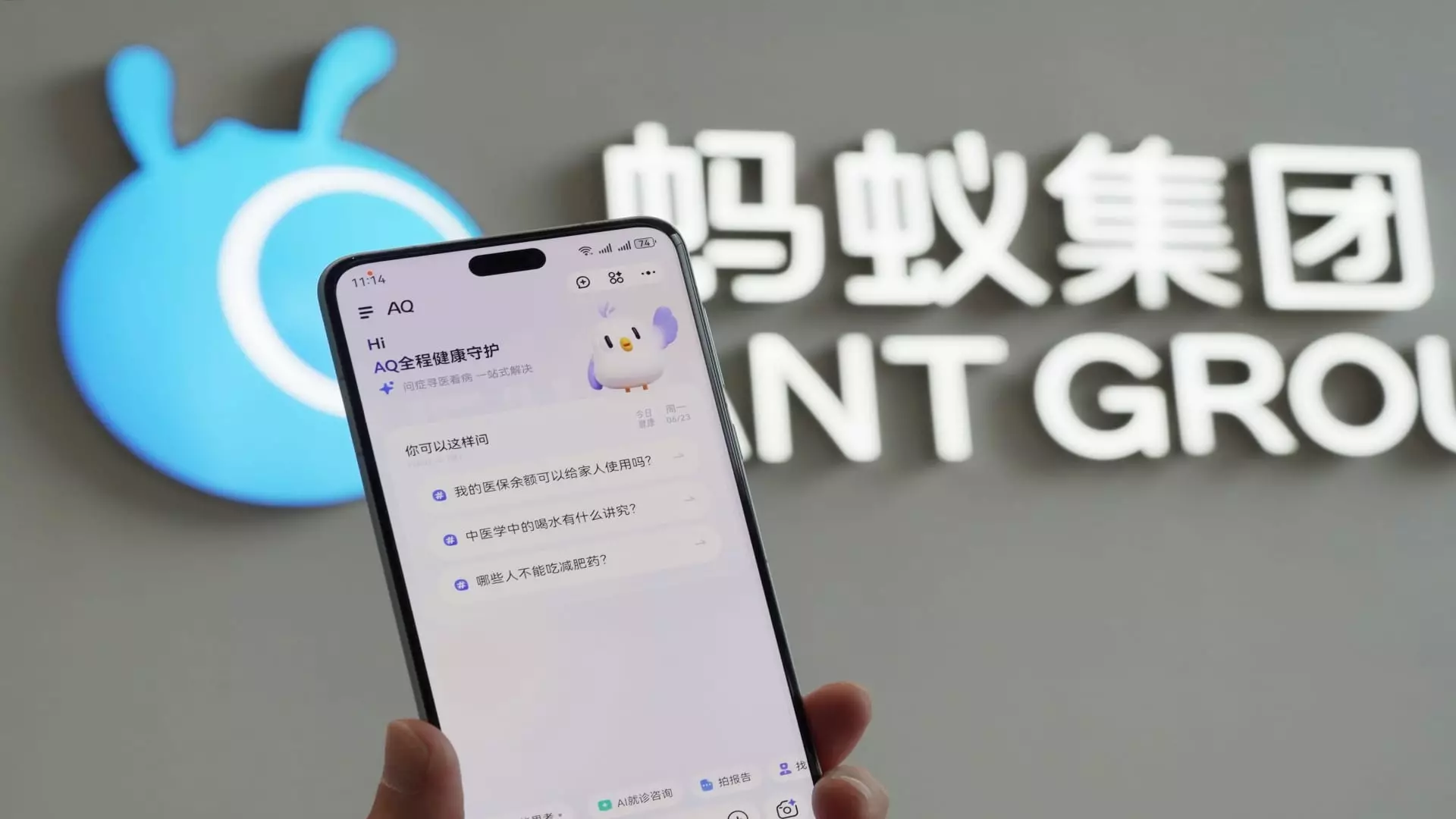In an age where artificial intelligence has rapidly evolved from a niche technology into an integral part of various sectors, Ant Group is stepping up its game by leveraging this innovation in the healthcare space. The announcement of the new smartphone app, AQ, is not merely a response to market trends; it’s a strategic maneuver aimed at reshaping how healthcare is accessed and delivered. With substantial investments in AI technology, Ant Group is showcasing China’s growing prowess in consumer-centric AI solutions. This move does not only signify a technological advancement but also an important cultural shift in how we view technology’s role in our daily lives, especially within critical sectors like healthcare.
A User-Centric Approach to Health Services
Ant’s new application, AQ—short for “answer your question”—is positioned as more than just an AI-driven platform; it aspires to be an accessible healthcare nexus. Users are invited to consult AI avatars of real-life medical specialists, who provide preliminary assessments and facilitate quicker access to specialists and hospitals if necessary. This approach cleverly addresses the frustration of long waits often encountered in China’s crowded healthcare facilities. However, while the application promises to streamline healthcare processes, it raises questions about the potential pitfalls of relying too heavily on AI for medical consultations.
The ease of accessing expert advice through a smartphone is undeniably appealing, yet it also carries an inherent risk: the depersonalization of healthcare. The emotional and nuanced nature of patient-doctor relationships cannot be easily replaced by algorithms and avatars. This brings a critical consideration to the fore: while technology can enhance efficiency, can it truly replicate the empathetic understanding that human practitioners offer?
Global Aspirations and Local Focus
Ant Group’s strategy appears to be a careful balance of local engagement and global ambition. Initially targeting the massive domestic market, Ant plans to extend its reach internationally by adapting the app into various languages. This move is significant; it reflects an understanding that healthcare challenges are universal, transcending cultural borders. Yet, the emphasis on the China market highlights a paradox: while the nation’s healthcare system boasts remarkable digital infrastructure, it’s essential to consider whether these AI innovations will maintain their efficacy once transplanted into different healthcare ecosystems.
Moreover, the tech landscape is not without competition. Companies like Tencent and Ping An Insurance are also vying for a stake in the healthcare AI arena. Yet, as U.S.-based giants like Microsoft and Amazon begin to unveil their own AI initiatives in healthcare, one must wonder if Ant’s offerings will stand out against the backdrop of powerful incumbents with more extensive resources and established reputations.
The Promise and Peril of Data
A backbone of Ant Group’s healthcare ambitions lies in the burgeoning pool of data and digital systems in China. With over 95% of the population covered by the national health insurance system and a significant portion of hospitals utilizing digital record-keeping, the conditions are ripe for AI applications. However, the sheer scale of data harvesting begs ethical questions. With an influx of personal health information being channeled into AI systems, are we sufficiently addressing issues of privacy and consent?
The interplay between innovation and ethical responsibility cannot be overstated, particularly in healthcare. As Ant Group navigates this new frontier, a balance between technological advancement and patient privacy must be prioritized. The consequences of failing to uphold these principles could lead to a trust deficit that undermines the very foundation of healthcare services.
Cultural Shifts in Technology Adoption
Incorporating AI into healthcare through applications like AQ signifies more than just a technological shift; it represents a cultural evolution in how society embraces innovation. The widespread adoption of Alipay not only demonstrates a preference for digital solutions but also encapsulates the trust that Chinese consumers place in tech-driven services. If Ant Group successfully cultivates this trust in its healthcare application, it has the potential to lead a significant transformation in patient engagement.
The question remains, however: will consumers, both domestically and globally, embrace an AI-centric approach to their health? It’s a gamble, one that points to a larger cultural narrative surrounding the relationship between technology and personal well-being. Embracing innovation requires more than just advanced algorithms; it demands a collective willingness to adapt to new norms in healthcare, a challenge that many may be hesitant to undertake in matters as intimate as health.

